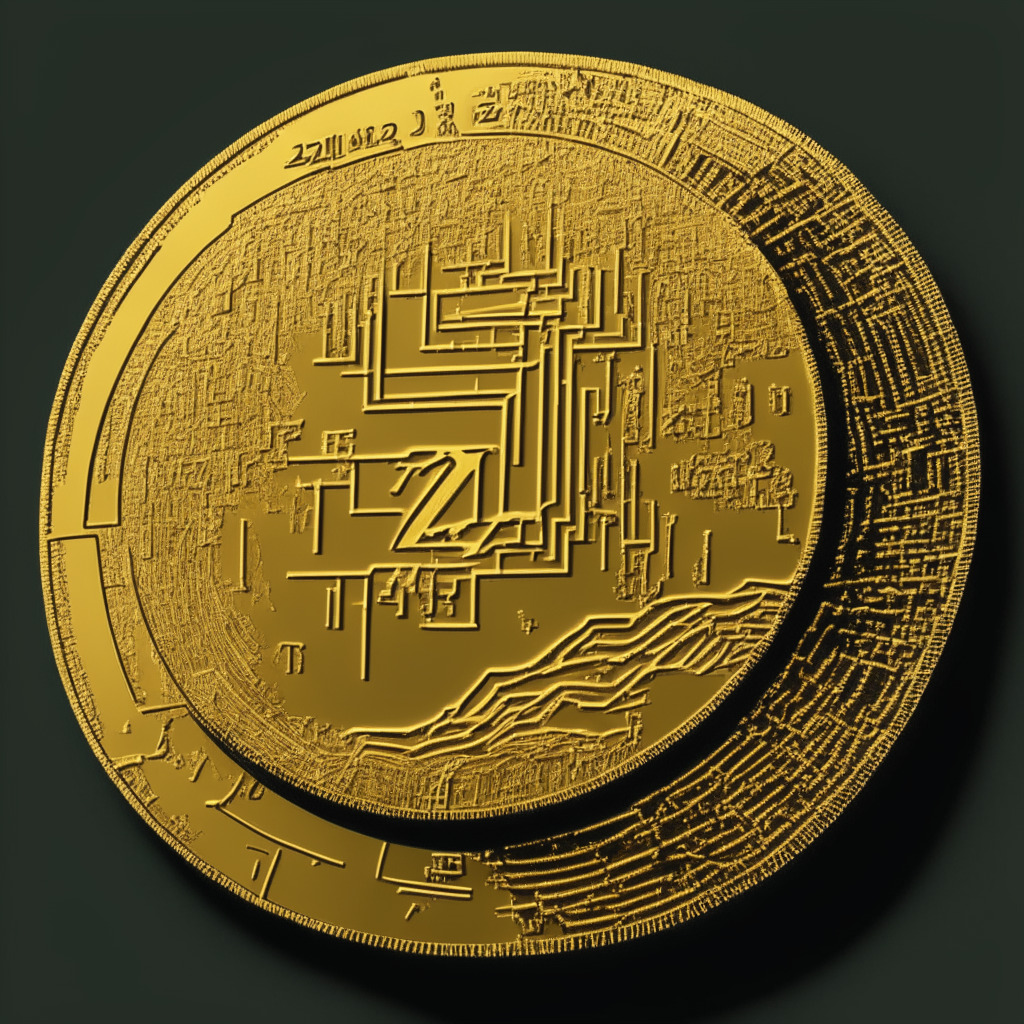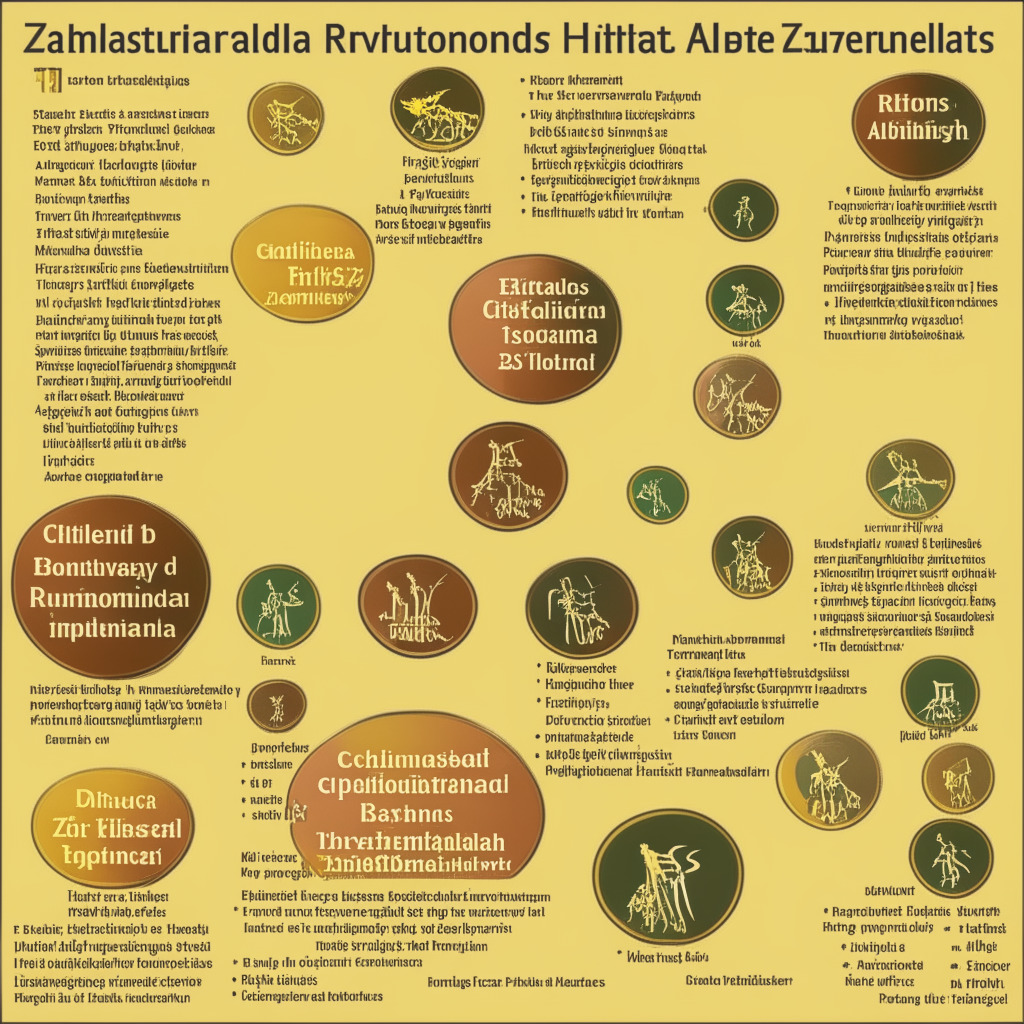“Cyprus is tightening regulations on Cryptocurrency Service Providers, aligning with international standards and penalties. In Zimbabwe, gold-backed digital tokens are becoming a domestic transaction method with value ensured by national gold reserves. Despite advancements, crypto fraud remains a pressing concern; investors must exercise caution.”
Search Results for: Reserve Bank of Zimbabwe
Unwrapping the Saga of Alameda’s USDT Mints & Zimbabwe’s Gold-Backed ZiG Tokens
“Alameda Research has minted over $38 billion in Tether (USDT) tokens in 2021, indicating that the total value of USDT creation surpasses Alameda’s total assets. The inner workings of this process involve benefiting from trade value discrepancies and ensuring USDT’s dollar peg stability. However, this raises ethical concerns for industry watchers.”
Zimbabwe’s Gold-Backed Digital Tokens: A Game Changer or Double-edged Sword?
Zimbabwe’s central bank has introduced a gold-backed digital token, Zimbabwe Gold (ZiG), as a payment method. Physical gold tokens were introduced last year to entice local investors to invest in national assets. The digitization aims to expand value-preserving instruments and facilitate investment versatility. The strategy’s success, amid socio-economic complexities and inflation, remains uncertain.
Zimbabwe’s Gold-Backed Digital Tokens: A Bold Tackle on Bloating Inflation
Zimbabwe’s Reserve Bank is preparing to release Gold-Backed Digital Tokens (GBDT), also known as ZiG, designed for public use. This nationwide project aims to educate Zimbabweans on the benefits and usage of digital currency, while managing inflation and offering an alternative investment to the US dollar.
Zimbabwe’s Launch of Gold-Backed Digital Tokens: A Bold Move in Turbulent Economic Times
Zimbabwe’s central bank is contemplating the introduction of gold-backed digital tokens (GBDT) for retail transactions as an alternative to the heavily relied upon US dollar. The GBDTs are backed by physical gold reserves and offer divisibility, making them more convenient and value-preserving. These could potentially help in combating the crippling inflation rate and provide a base for a future central bank digital currency ecosystem.
Zimbabwe’s Gold-Backed Digital Tokens: A Solution to Hyperinflation or Just a Mirage?
The Reserve Bank of Zimbabwe issued gold-backed digital tokens to stabilize the local currency and offer an alternative to the Zimbabwean dollar. However, experts argue that digital tokens alone cannot tackle high money supply growth, the root cause of the economic problem, and suggest focusing on macroeconomic policies and controlling money supply growth instead.
Zimbabwe’s Gold-Backed Crypto: A Stabilizing Force or Risky Venture Against IMF Warnings?
The Reserve Bank of Zimbabwe sold $39 million worth of gold-backed digital tokens despite IMF warnings, aiming to stabilize the economy and address local currency depreciation. However, the IMF recommends liberalizing the foreign-exchange market, citing concerns about financial stability risks, operational risks, and governance risks.
Zimbabwe’s Gold-Backed Digital Token: Stability vs Decentralization Debate in Crypto World
The Reserve Bank of Zimbabwe (RBZ) has invited individuals and institutions to subscribe to its gold-backed digital token, aiming to combat Zimbabwe’s volatile local currency. This move highlights the conflict between traditional finance and digital currencies and raises questions regarding the intersection of these approaches.
Zimbabwe’s Golden Gamble: Pros and Cons of a Gold-Backed Digital Currency
The Reserve Bank of Zimbabwe (RBZ) plans to issue gold-backed digital tokens on May 8, […]








